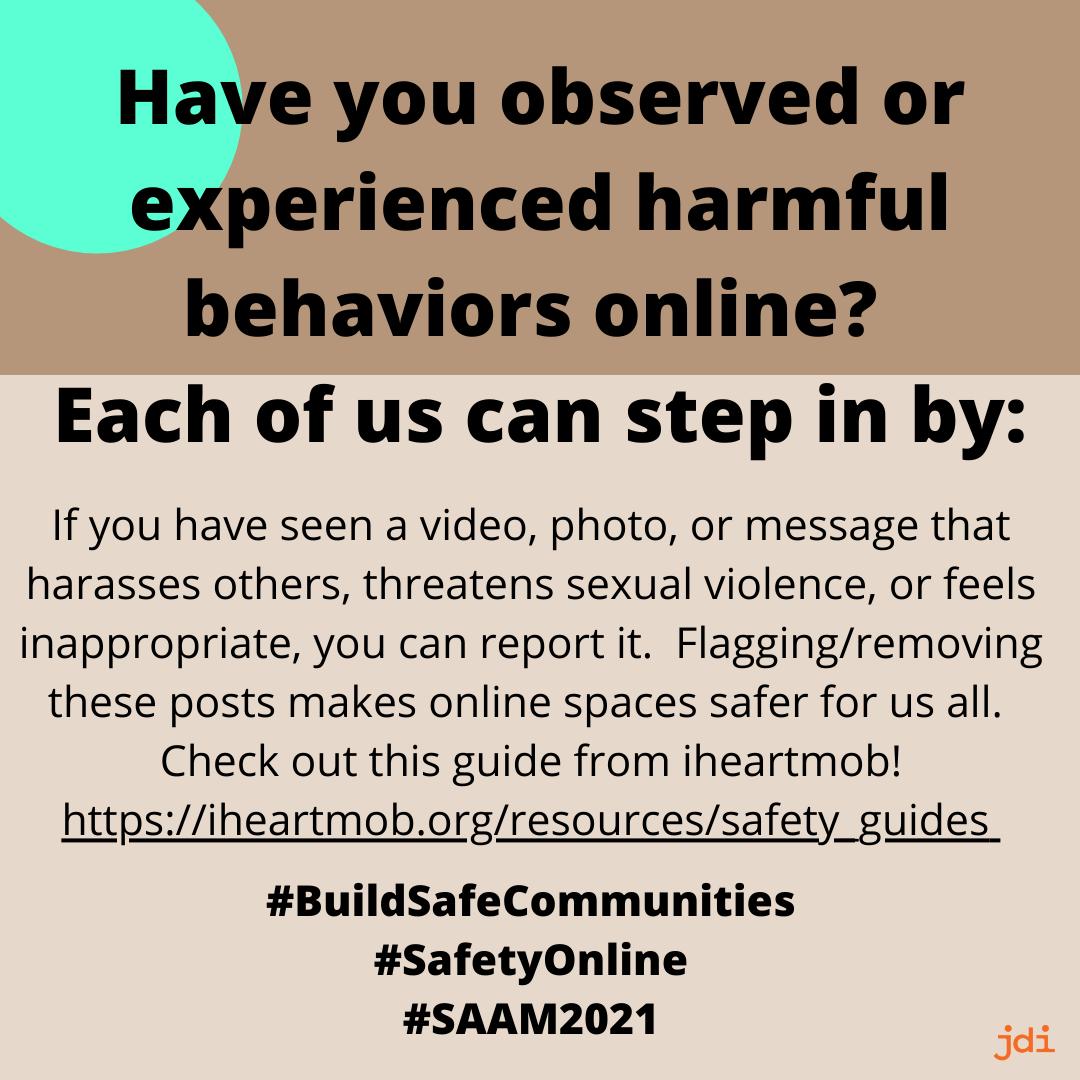
Remarks by Debra J. Robbin, JDI’s Executive Director
April 21, 2021 at a SAAM Event hosted by Lt. Governor Karyn Polito
I am honored to be here today as the Executive Director of Jane Doe Inc (JDI), as an Advocate and as a survivor of sexual assault. I want to extend many thanks to you, Lt. Governor Polito, for your leadership and for hosting today’s event.
And to Secretary Sudders, thank you for your unwavering support of this work.
On this particular day of Sexual Assault Awareness Month in 2021, I would be remiss if I did not acknowledge the multiple pandemics of this moment in time: COVID, sexual violence and racial injustice.
They are all insidious and inextricably linked and they all lift up the parallel issues of why a public health and human rights approach that centers oppression and disparities is so important. It is only through our collective efforts and partnerships that we can even begin to make progress, focus on healing, and find new ways to address accountability and justice.
While April 2021 marks the 20th official anniversary of Sexual Assault Awareness Month, its roots run deep–from the civil rights movement to the founding of the first rape crisis center to critical state and federal legislation.
We have come a long way in this work: moving from awareness to prevention, understanding that the actions of those who commit sexual assault and cause harm are not about the stranger in the alley but more likely about the person we know in our families, our neighborhoods, our communities, our schools and our workplaces.
We also know that this work is founded on the amazing activism of survivors whose breadth of lived experiences informs and guides our work every day.
While this past year has both exposed all of the challenges and inequities, it has also given us opportunities to affirm what we already know:
• That sexual violence thrives on silence and isolation;
• That healing looks different for every person who is a survivor;
• That rape crisis centers are the hubs of expertise in their communities, and they are an essential resource as thought leaders, for survivors and their families and for moving the needle on changing the social norms that foster sexual violence in the first place.
And it is the advocates at rape crisis centers who I want to uplift today. During the past year, it has been their commitment, their innovation and their resilience that has made the difference for survivors.
From pivoting practically overnight to providing virtual services, to figuring out how to provide training, outreach and prevention programming in this new reality to addressing the myriad of ongoing and new insurmountable challenges facing survivors—it is the workforce of advocates—paid (but not enough) and unpaid—who have shown up time and time again for survivors.
From the advocate who created healing packages of arts and crafts and sent them to every support group member so that they could co-create healing arts together and virtually.
To the advocate who lives in rural Western MA and had to drive down a mountain to a parking lot in order to have the best cell phone coverage possible to answer hotline calls;
To the many advocates delivering food, medical supplies, PPE and children’s toys and supplies across the state in cities, towns and islands in order to ensure that their clients had what they needed to do more than survive.
And to the mobile healing van that Isa just described and the love and compassion that her staff and the staff of all rape crisis centers have had in being a lifeline to those in their communities who rely on their expertise, their assurances and their resilience.
Indeed, it takes all of us to create the safety net for survivors. Thank you to all who are here today and to the larger community for being part of that safety net.
Thank you.

We invite you to learn more about these various initiatives an how you can help prevent sexual violence.
- Check out the resources and information about creating online safe spaces and more at: https://nsvrc.org/saam.
- Watch JDI’s 5 Things with JDI every Wednesday at 11AM on JDI’s Facebook Page as we talk about advocacy and prevention: https://facebook.com/janedoeinccoalition.
- If you or someone you know needs help, reach out to a sexual violence program. Visit https://janedoe.org/findhelp.
- Participate in activities hosted by sexual violence programs across Massachusetts. Events listed on this calendar: https://www.janedoe.org/events/.
